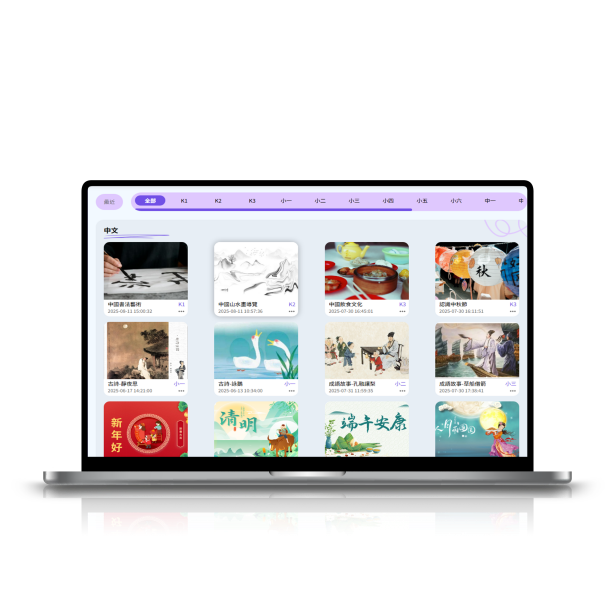Additionally, the Education Bureau has previously provided the "Grant for Promoting Chinese Culture and the Arts" and the "Enhanced Grant for Promoting Chinese Culture and the Arts" to all Scheme-KGs. Depending on student enrolment, each kindergarten may receive a grant of HK50,000 or HK80,000 for the standard grant, and HK150,000 or HK240,000 for the enhanced grant, respectively. These grants aim to support kindergartens in helping young children develop an understanding of Chinese culture from an early age and foster a sense of national identity.
The product solutions offered by IF Interactive comply with the grant requirements and are suitable for organizing Chinese Cultural Day events, daily Chinese culture curriculum activities, and enriching teaching and learning resources on Chinese culture
Which Institutions Are Eligible for the "Grant for Promoting Chinese Culture and the Arts" and the "Enhanced Grant for Promoting Chinese Culture and the Arts"?
Kindergartens participating in the Kindergarten Education Scheme (“Scheme-KGs”)
What Activities Can Be Organized Under the "Enhanced Grant for Promoting Chinese Culture and the Arts"?
1. Design and organize learning themes and activities related to Chinese culture and the arts
Support children’s continuous exploration and appreciation of Chinese traditions, arts, architecture, and customs.
Examples: setting up Chinese cultural experience days, inviting parents to share traditional crafts or music, and arranging exhibitions or performances to help children experience the richness of Chinese culture and develop a sense of national identity.
2. Provide picture books and reading programs themed on Chinese culture and moral development
Encourage children to cultivate good reading habits, learn about Chinese values through daily life (e.g. respecting elders, showing courtesy and gratitude), and strengthen moral education through classic stories.
3. Purchase learning materials and organize experiential activities
Examples: Chinese musical instruments, traditional toys, costumes, art supplies, and materials for children to create Chinese crafts (e.g. paper cutting, lanterns, calligraphy).
Visits to museums and cultural institutions can also be included to deepen learning experiences.
4. Support school-based sharing and cultural extension
Schools may share their cultural learning achievements (e.g. photos, videos, displays) on their websites, and organize performances or exhibitions for families and the community to showcase children’s understanding and pride in Chinese culture.
What Is the Duration of the "Grant for Promoting Chinese Culture and the Arts" and the "Enhanced Grant for Promoting Chinese Culture and the Arts"?
Kindergartens that have received both the Enhanced Grant and the Grant for Promoting Chinese Culture and the Arts may use the funds until 31 August 2026.
Kindergartens that have received the Grant for Promoting Chinese Culture and the Arts but have decided not to apply for the Enhanced Grant and will return the full amount of the enhanced grant may use the funds until 31 August 2025.
How to Apply for the Grant?
No application is required.















